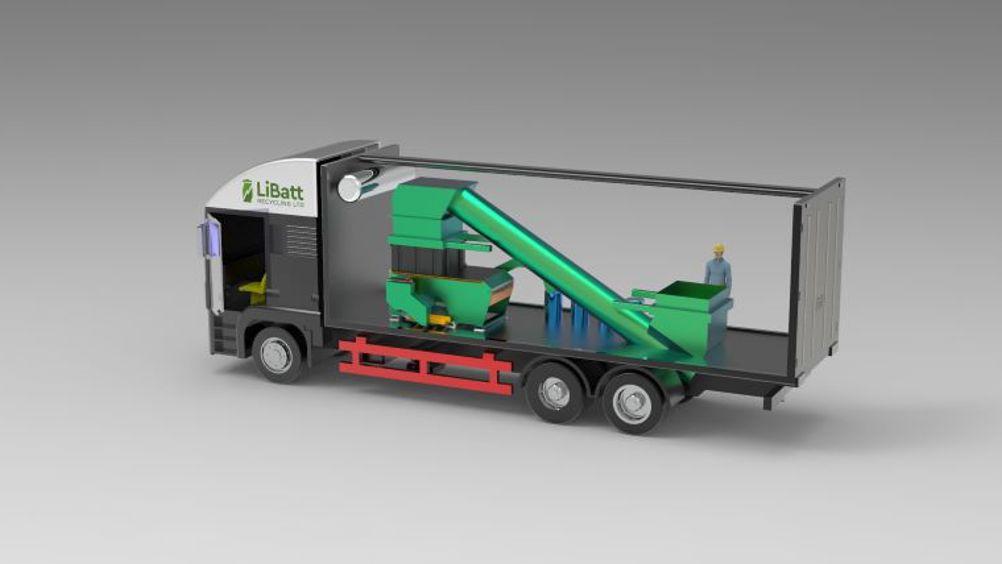Recyclus to create a mobile lithium-ion battery recycling system
Recyclus is collaborating with Birmingham University in a project to create a mobile battery recycling system capable of safely handling lithium-ion batteries.

The company, 49 per cent owned by Technology Minerals, will lead the project, which has received £1.96m in funding from Innovate UK. The Advanced Materials & Processing Laboratory (AMPLab) at Birmingham University will support the project.
Recyclus' first lithium-ion recycling plant in Wolverhampton is capable of recycling 8,300 tonnes of lithium-ion per year.
They will now design and build a compact prototype Universal Battery Recycling System (UBRS), a mobile recycling truck capable of handling a complete range of Li-ion battery modules on an individual or batch-load basis.
The recycling trucks will be based on Recyclus’ existing technology for industrial-scale Li-ion battery recycling, which is capable of handling the five key lithium-ion chemistries in any combination. Recyclus plans to operate the recycling trucks with sizes ranging from 7.5 to 16 tonnes, which will be capable of processing between 500 and 2,000kh of Li-ion batteries per hour.
The company said the system will be completely sealed, emission free, with a gated infeed chamber and a series of sealed outfeed chutes which feeds separated materials - black mass (containing lithium, manganese, cobalt and nickel), electrolyte, ferrous and non-ferrous metals, and light mixed fraction (plastic, rubber and paper) - into collection containers.
Register now to continue reading
Thanks for visiting The Engineer. You’ve now reached your monthly limit of news stories. Register for free to unlock unlimited access to all of our news coverage, as well as premium content including opinion, in-depth features and special reports.
Benefits of registering
-
In-depth insights and coverage of key emerging trends
-
Unrestricted access to special reports throughout the year
-
Daily technology news delivered straight to your inbox










Water Sector Talent Exodus Could Cripple The Sector
Maybe if things are essential for the running of a country and we want to pay a fair price we should be running these utilities on a not for profit...